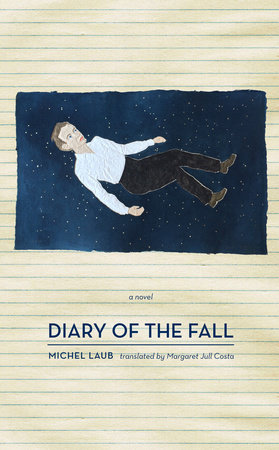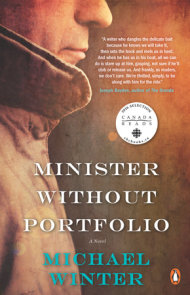READERS GUIDE
1. What is the relationship between the prank the boys play on João and the cruelties the narrator’s grandfather faced in Nazi Germany? Are any similarities between João and the speaker’s grandfather?2. Each of the three men in the novel—the narrator, his father, and his grandfather—record histories. What does this act accomplish for each of them? Are there any similarities in the way they record these histories? Are the histories they record accurate reflections of their realities? Does history hold any power over their lives? If so, how does it play out? What is the relationship between history and telling—or not telling—one’s own story; the relationship between memory, history, and storytelling?
3. How does the structure of the book—that of a diary—shape the narrative that is told?
4. The narrator often remarks, “I don’t know” (for example, pp 3, 23, 24, 63). Are there other phrases of uncertainty that he uses? How does this lack of knowledge or certainty relate to his grandfather’s memoir, his father’s illness, and the nature of memory in general? How does this relate to the guilt the narrator feels over the prank played on João and the initial distance he feels from his Jewish heritage?
5. Several sections of the novel begin with “A Few Things I Know About My Grandfather/Father/Self.” At the beginning of each of these respective sections, who does the narrator begin speaking of? Why do you think Michel Laub structured the novel in this way?
6. “There’s nothing more difficult when you’re thirteen than changing your label.” The narrator says this in reference to his cutting ties with his old friends. Could his grandfather’s insistence in never mentioning his experiences at Auschwitz also be described as an effort to change his “label”?
7. What is the significance of such a large portion of the story taking place when the narrator is thirteen?
8. Discuss the relationship between imagining and knowing in the novel. Keep in mind the uncertainty the narrator repeatedly expresses and the following passage from page 196: “…my grandfather’s memoir can be summed up in the phrase the world as it should be, which presupposes an opposite idea: the world as it really is.”
9. What is “the fall” that the title of the novel references? Does it manifest in more than one way? Does “the fall” seem to have the same effect on João that it has on the narrator? Is there more than one character who suffers through a “fall”?
10. What is the purpose of repetition in the novel? (See “hygiene,” pp 39, 111, 142; “Auschwitz,” pp 143, 150–151; “a repetition of what I did on his birthday,” p 176; “because that would be a reminder of what I was capable of doing to him over and over again,” p 177; “the nonviability of human experience at all times and in all places,” pp 205, 215, 217.)
11. On page 157 the narrator says, “because if Auschwitz had killed only one person on the grounds of ethnicity or religious belief, the mere existence of such a place would be just as appalling.” How does this relate to the prank that was played in João? What are the wider implications of the statement?
12. Do you think the novel says anything definitive about the nature of cruelty?






















